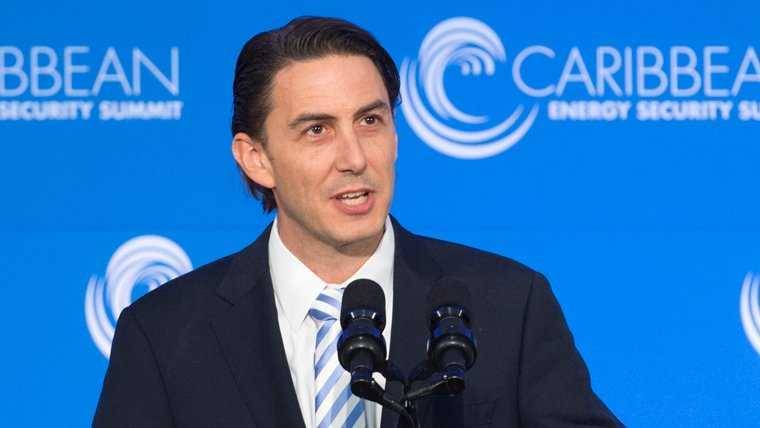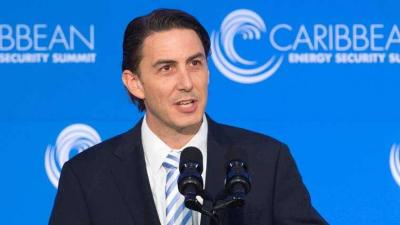While the U.S. State Department has scheduled the visit of U.S. envoy for global energy security Amos Hochstein to Lebanon tomorrow and the day after to resume negotiations on the maritime border demarcation file, Lebanese disagreements among officials on providing a unified response continue. According to official sources via "Al-Jarida," Lebanon will not present Hochstein with a written response, but there is an agreement to inform him of the stance verbally, while insisting on the need to continue negotiations. In contrast, American atmospheres indicate that the U.S. envoy insists on receiving a response quickly, hinting that this visit could be his last unless a final solution to the issue is reached.
Official sources emphasize that Lebanon will inform Hochstein of its rejection of the proposal he previously submitted, which grants it an area less than 860 square kilometers in relation to the zigzag line suggested by the U.S. envoy. Lebanon will insist on maintaining Line 23 in full, that is, an area of 860 square kilometers, in addition to its claim on the "Qana" field, thus making the area exceed 860 square kilometers. This Lebanese request is still rejected by the Americans and Israelis, while some Lebanese officials consider it the best solution if Washington wants to resolve this file.
In this context, President Michel Aoun called for a presidential meeting to discuss response mechanisms. However, it was notable that Speaker of Parliament Nabih Berri was absent from the meeting at the Baabda Palace. According to following sources, Berri refused to participate in the meeting in protest against the negotiation mechanism being followed by Aoun and also rejected entering any format that Aoun wishes to cement, opposing it would mean granting cover to the decisions of the President. Additionally, Berri declares his commitment to the framework agreement, and thus his position is public, with no need to declare another. Berri also does not overlook Aoun’s constant statements emphasizing that he is the one with the authority to negotiate, as if Aoun wants to marginalize everyone and only calls Berri when he needs him to obtain his signature.
All these indicators suggest that the Lebanese position remains subject to dispute and disagreement, which could weaken Lebanon's position in negotiations. If the disagreement persists and the Lebanese fail to reach an agreement on the border demarcation, it becomes unpredictable what scenarios might unfold, especially since Israel will start extraction operations, which poses a danger to Lebanese wealth. There are no indications that the Israelis or Americans are prepared to halt extraction operations, especially as Israel is eager to benefit from rising oil and gas prices.
Meanwhile, Hezbollah Secretary-General Hassan Nasrallah emphasized the need to immediately stop extraction operations without reaching an agreement. Nasrallah laid out a clear equation that Israel could not be allowed to explore while Lebanon is prohibited from doing so, with his tone revealing a military threat to target the ship if it does not cease operations. Nasrallah also directed a direct threat to Greece and the Greek company, prompting a diplomatic response from Athens, which summoned the Lebanese charge d'affaires to convey a protest message regarding Nasrallah’s threat and informed her that the company is not owned by the Greek government but by an individual holding both Greek and Israeli citizenship.




